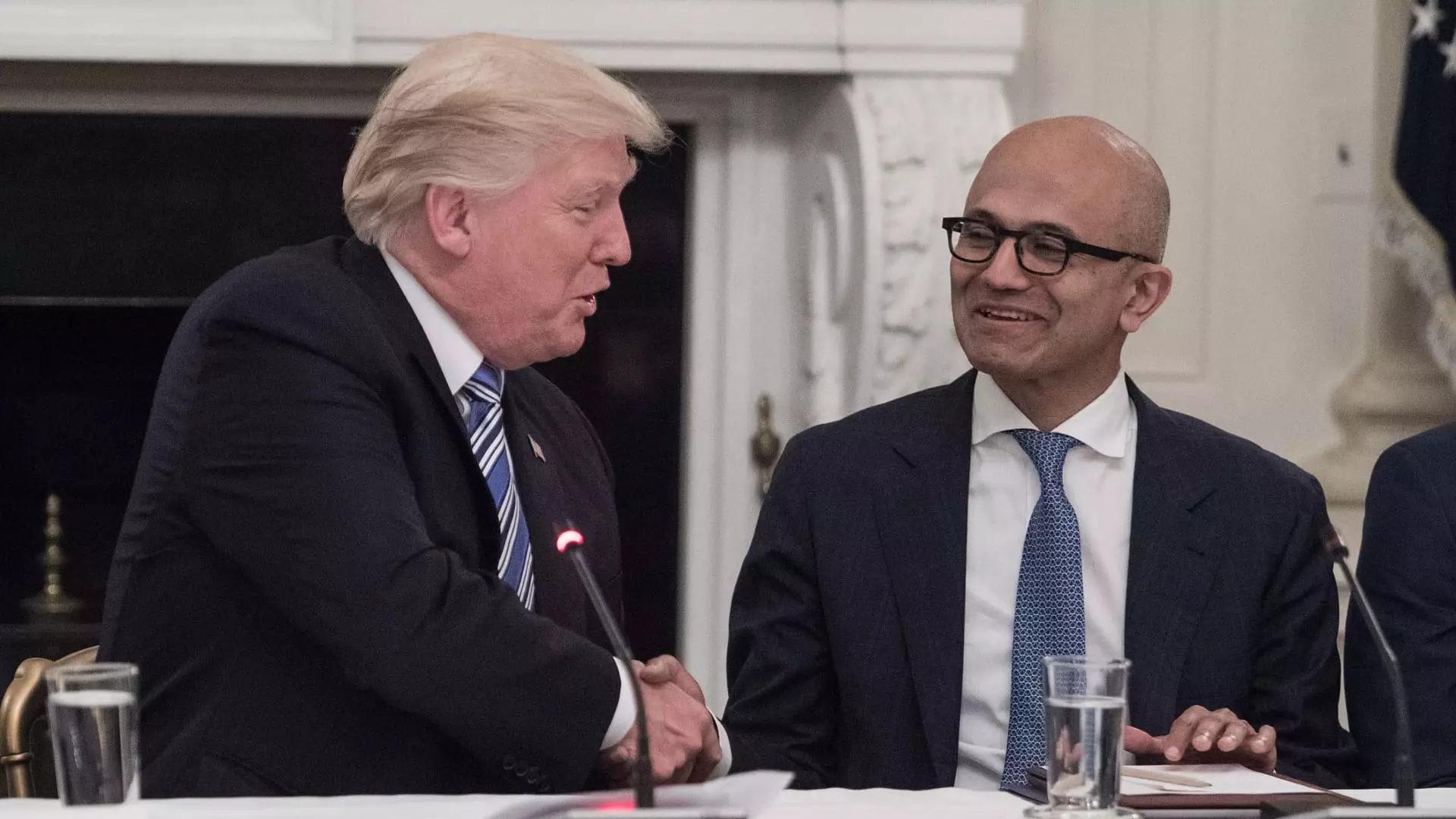In recent years, the intersection of technology and politics has grown more pronounced, with major tech companies increasingly vocal about their support for political entities. A notable example is Microsoft, which has pledged $1 million to President-elect Donald Trump’s inauguration fund. This financial commitment aligns Microsoft with other notable giants in the technology sector, such as Google and Meta, who have made similar contributions. This collective approach suggests a trend of technology leaders attempting to foster relationships with prevailing political figures, hoping to shape policies that align with their business interests.
The willingness of companies like Amazon and individuals such as Sam Altman of OpenAI to contribute million-dollar donations indicates a broader strategy within the tech community. These contributions appear to reflect a deliberate effort to align with political leadership that may facilitate favorable regulatory environments for technology initiatives. Notably, Eli Musk, CEO of Tesla, has been engaging with Trump’s administration, hinting at an influential role for tech leaders as the political narrative shifts in favor of the incoming administration. This dynamic illustrates a collective ambition among tech magnates to solidify their interests within the political sphere.
In addition to monetary donations, strategic relationships also play a crucial role in this equation. For instance, Satya Nadella, Microsoft’s CEO, has had multiple interactions with Trump, including discussions about high-stakes negotiations like the acquisition of TikTok. Such relationships highlight not only the value of financial contributions but also the importance of direct engagement with political power. Companies are not merely offering monetary support; they are also seeking to influence the direction of political decision-making through personal connections and dialogues.
Beyond financial contributions, there is a more substantial underlying motive: shaping national and international artificial intelligence policy. Microsoft’s vice chair, Brad Smith, has voiced that the U.S. requires a “smart international strategy” to advocate for American interests in AI technology. By aligning with a potentially more favorable political landscape under Trump, tech companies are not only safeguarding their immediate interests but are actively engaging in a larger conversation about the future of AI legislation and funding.
However, this trend of significant political contributions is not without potential backlash. The tech industry has faced scrutiny for their political entanglements, with critics arguing that such financial backing can lead to increased regulatory scrutiny or public perception issues. Additionally, as these companies become entangled with political figures, they risk alienating portions of their consumer base that may not share their political leanings. This gamble to influence political outcomes raises ethical questions about the impact of corporate money on the democratic process.
As major tech players like Microsoft navigate the complex waters of political contributions, they must balance the potential benefits of alignment with power against the risks associated with public perception and ethical considerations. With significant financial commitments being made, the industry’s focus on influencing policy directions raises vital questions about the future landscape of tech regulation and corporate responsibility in American governance. Only time will reveal the impact of these strategic partnerships on both the tech industry and the political framework that shapes their operations.

